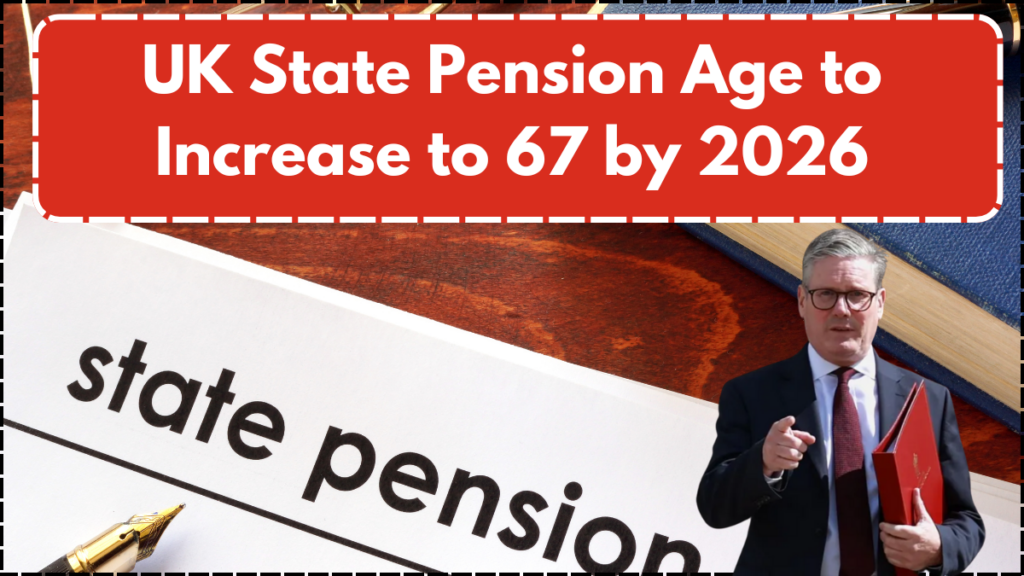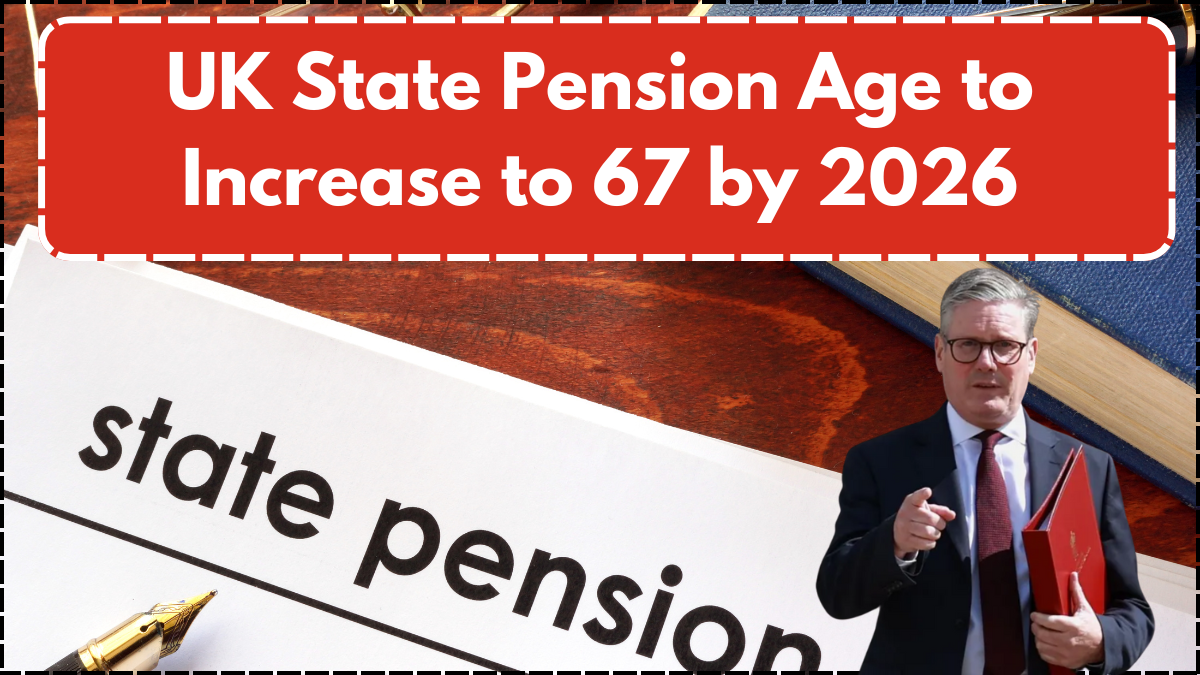Starting in 2026, the UK State Pension age will officially begin increasing from 66 to 67. This transition will affect both men and women, with full implementation expected by 2028. This change, part of a legal framework established by the Pensions Act 2014, reflects a long-term policy shift intended to align retirement age with longer life expectancy and changing demographics.

Accelerated Timeline and Who Will Be Affected
Under the Pensions Act 2014, the timetable for increasing the pension age was fast-tracked by eight years. Those born on or after April 6, 1960, will be most affected, as their retirement age will now be 67 instead of 66. This shift means many will need to work longer before they become eligible for State Pension payments.
Future Increase to Age 68 Already Planned
A further increase from age 67 to 68 is scheduled for the period between 2044 and 2046. This change, legislated under the Pensions Act 2007, underscores the UK Government’s strategic approach to ensuring long-term sustainability for the pension system. However, this timeline is not set in stone; the government has committed to reviewing the pension age every five years.
Who Will Transition to the New Retirement Age?
People born between March 6, 1961, and April 5, 1977, will experience a phased transition to the new retirement age of 67. Rather than a single cut-off date, this approach allows for a gradual implementation to prevent sudden disruptions in retirement planning.
Impact of State Pension Changes by Birth Date
| Birth Date Range | State Pension Age | Implementation Period |
|---|---|---|
| Before April 6, 1960 | 66 | Already in effect |
| April 6, 1960 – March 5, 1961 | Gradual shift | 2026-2028 |
| March 6, 1961 – April 5, 1977 | 67 | By 2028 |
| Post-April 5, 1977 | Subject to future changes | TBD |
Upcoming Review and Legislative Updates
The next review of the State Pension age is expected in 2026, following the general election. While the increase to 68 is currently scheduled for the 2040s, this could be revised earlier depending on the outcomes of the government’s review. Any adjustments would require parliamentary approval.
New Tools and Services from HMRC
As of April 2025, HMRC has expanded its digital services to improve pension access and transparency. Over 10,000 payments amounting to £12.5 million have been processed via a new digital platform launched in 2024. This platform enables easier tracking of pension contributions and gaps.
Extended Deadline for National Insurance Contributions
Individuals now have until April 5, 2025, to make voluntary National Insurance (NI) contributions to fill gaps from April 6, 2006, to April 5, 2018. This extension is particularly important for men born on or after April 6, 1951, and women born on or after April 6, 1953, who still have an opportunity to enhance their State Pension.
Understanding Your NI Record and Forecast Tools
To qualify for any State Pension, you must have at least 10 years of NI contributions. To receive the full new State Pension, you need 35 qualifying years. These do not need to be consecutive. Since the digital update in 2024, more than 3.7 million people have used the government’s online pension forecast tool to review their records.
Planning Contributions Wisely
While topping up NI contributions can boost pension payouts, it’s not always necessary or beneficial. Experts recommend evaluating your employment history, future working years, and eligibility for NI tax credits before purchasing additional years. Overpaying does not increase pension beyond the maximum limit and the cost of voluntary contributions can be significant.
Conclusion
With the rise in the State Pension age beginning in 2026, and further changes on the horizon, individuals approaching retirement must stay informed and proactive. Taking advantage of digital tools, understanding contribution requirements, and planning ahead are crucial steps to securing a stable retirement income.
FAQs
What is the new State Pension age starting in 2026?
The State Pension age will begin increasing from 66 to 67 in 2026, with full implementation by 2028.
Who will be affected by the pension age increase?
Anyone born on or after April 6, 1960, will be impacted, with specific attention to those born between March 6, 1961, and April 5, 1977.
Can I still make voluntary National Insurance contributions?
Yes, the deadline to backfill NI contributions from 2006 to 2018 has been extended to April 5, 2025.
How many NI years do I need for a full State Pension?
You need at least 10 qualifying years to receive any pension, and 35 years for the full amount.
Where can I check my NI record?
You can use the UK Government’s State Pension forecast tool, available through their digital services, to check your NI history.
Will the pension age increase again?
A further increase to age 68 is scheduled between 2044 and 2046 but is subject to review.
What happens if I overpay my NI contributions?
Overpayments do not increase your pension beyond the full entitlement and are not refundable.
What if I took time off work?
You may be eligible for NI credits if you were unemployed, ill, or caring for family.
Is the State Pension reviewed regularly?
Yes, the State Pension age is reviewed at least every five years by law.
What digital tools are available?
The HMRC platform provides tools to check pension forecasts, view NI gaps, and make payments online.
For More Information Click Here
Pari is a passionate writer known for captivating stories that blend imagination and reality. Inspired by travel, history, and everyday moments, Pari crafts narratives that resonate deeply with readers.




